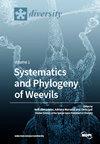Color Polymorphism of Unfeathered Parts of the Great White Egret Ardea alba alba in Europe: An Analysis of the Internet Images
IF 2.1
3区 生物学
Q2 BIODIVERSITY CONSERVATION
引用次数: 0
Abstract
Polymorphism has been described in many avian taxa including Ardeidae. This study investigated the spatio-temporal distribution of color polymorphic forms (with regard to the color of the unfeathered parts (legs/lores)) of the Great White Egret Ardea alba alba in internet images from Europe. In total, 140 images of presumed polymorphs from 16 countries (from 2006 to 2021) have been collected and examined. Eight coloration schemes of visible unfeathered parts were distinguished. Since some polymorphs may represent the subspecies Eastern Great Egret Ardea alba modesta, the ratio of beak length to total head length was compared among individuals representing the nominal and Eastern Great Egret subspecies. The ratio distributions were similar in all compared groups; thus, polymorph egrets may represent both of these subspecies. Most polymorph images originate from the Netherlands and the southwestern Norwegian coast. This may have resulted from specific local diets and contact with hormone-disrupting compounds. Nevertheless, some observation biases, such as the presence of local breeding population or high numbers of nature photographers, could have affected our observation pattern. Some analyzed features also followed temporal patterns. Most polymorphs were observed during the breeding season, suggesting disruptions of sex hormones as a possible cause. Studies of spatio-temporal patterns of polymorph occurrence may allow us to obtain insights into the causes of large variation in coloration schemes in polymorphic species.欧洲白鹭无羽部位的色彩多态性——基于网络图像的分析
在包括鸭科在内的许多鸟类分类群中都发现了多态性。本研究调查了欧洲网络图片中白色白鹭(Ardea alba alba)的颜色多态形式(关于无羽部分(腿/胸)的颜色)的时空分布。总共收集和检查了来自16个国家(2006年至2021年)的140张假定多态性图像。区分了可见无羽部分的八种配色方案。由于一些多态性可能代表东部大白鹭亚种Ardea alba modesta,因此比较了代表名义和东部大白鹭亚种个体的喙长与总头长之比。各比较组的比例分布相似;因此,多态白鹭可能代表这两个亚种。大多数多形图像起源于荷兰和挪威西南部海岸。这可能是由于特定的当地饮食和与激素干扰化合物的接触。然而,一些观察偏差,如当地繁殖种群或大量自然摄影师的存在,可能会影响我们的观察模式。一些分析的特征也遵循时间模式。大多数多态性是在繁殖季节观察到的,这表明性激素的破坏是可能的原因。对多态发生的时空模式的研究可以让我们深入了解多态物种的显色方案差异很大的原因。
本文章由计算机程序翻译,如有差异,请以英文原文为准。
求助全文
约1分钟内获得全文
求助全文
来源期刊

Diversity-Basel
Environmental Science-Ecological Modeling
CiteScore
3.40
自引率
12.50%
发文量
925
审稿时长
11 weeks
期刊介绍:
Diversity (ISSN 1424-2818) is an international and interdisciplinary journal of science concerning diversity concept and application, diversity assessment and diversity preservation. It is focused on organismic and molecular diversity. It publishes reviews, regular research papers and short notes in the regular issues. Related news and announcements are also published. Our aim is to encourage scientists to publish their experimental and theoretical results in as much detail as possible. Therefore, there is no restriction on the length of the papers. Full experimental details must be provided so that the results can be reproduced.
 求助内容:
求助内容: 应助结果提醒方式:
应助结果提醒方式:


